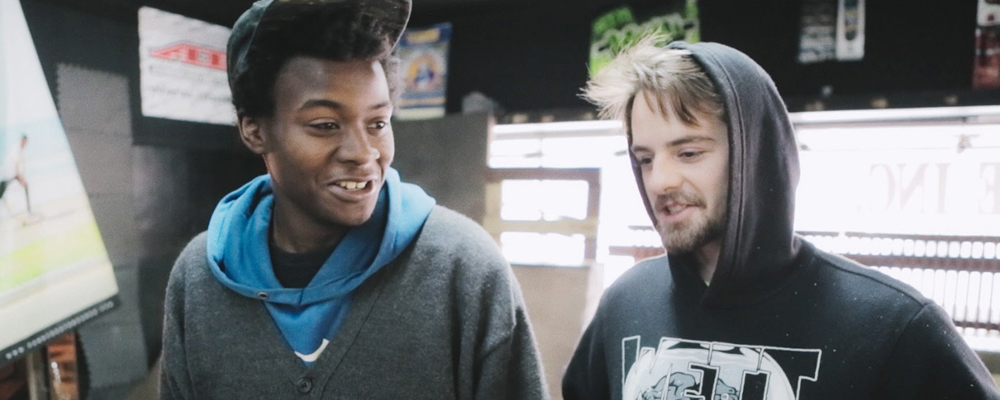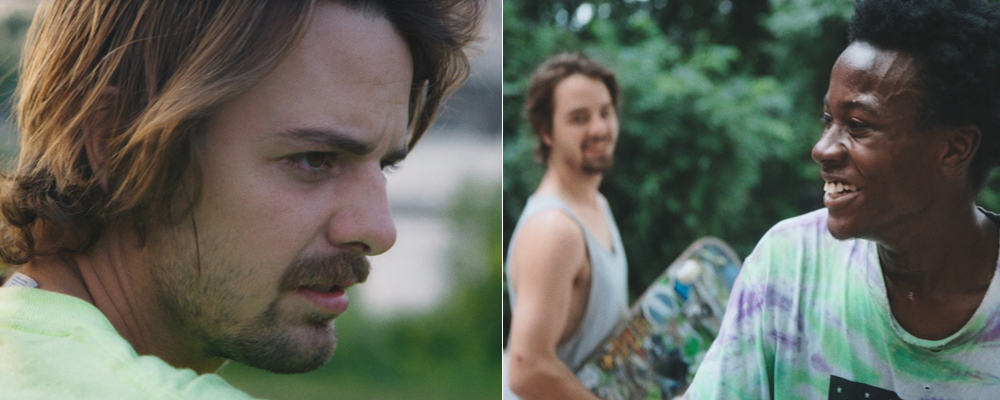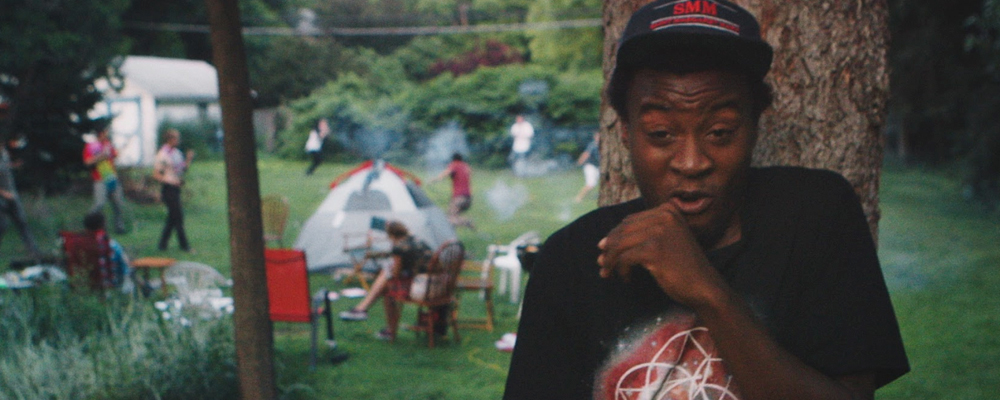Director Bing Liu Talks His Poetic Documentary of Lost Youth ‘Minding the Gap’
Alci Rengifo
At the age of 29 Bing Liu has already made a piercing documentary that feels like a lifetime’s work. “Minding the Gap,” released by Hulu for streaming and select theaters, assembles footage Liu has filmed of friends growing up amid the social wasteland of Rockford, Illinois. The economy is in tatters and the children of the neighborhoods are left to fend for themselves, with many finding solace in skateboarding. Filmed over the course of years, Liu focuses on three specific friends, Zack, Kiere and Nina, Zack’s girlfriend. He films them seeming to fly on their skateboards, escaping the troubles of the world. But soon enough Zack is thrust into another reality when Nina becomes pregnant, and once Kiere enters the workface his own life also starts shifting.
What bonds these friends is how they came together in the local parks and skateboarding zones as refugees from lives unfair and brutal. It is a place of few opportunities and many traps. Liu captures moments of stunning intimacy in conversations and arguments, going so far as to focus on his own past with an abusive stepfather. In one of the documentary’s most harrowing moments, he interviews his own mother, asking about how aware she was of the abuse he suffered. Yet Liu is a natural filmmaker with the spirit of a poet, shooting and editing this documentary into a work of stunning social relevance and also cinematic beauty. It is a harsh beauty to be sure, but absolutely enthralling. His story, and that of Zack and Ziere, is a snapshot of a lost youth living in a specific time in America.
Liu recently sat down with Entertainment Voice to discuss his road traveled from skater kid to renowned filmmaker.
So you were shooting these people in your life. When did the idea come to you that this could be a full-length documentary?
You know, I made tons of skate videos, serious projects, for like three years and then I did short docs and short narratives. They all dealt with trauma, childhood and identity. So when I was 24 I thought, what if I focus on that background of the skating community that I’m a part of? I drove around the country and met skateboarders, and sure enough those patterns were there. Not only were those patterns there, but people were so happy to talk about it. I’m talking about even 45 year-old moms who skated, talking about their abuse and their safe space. A year in I went back to Rockford and I saw this African American skater and his white friends, and I interviewed him and realized this was me when I was younger. So I followed Zack and Ziere.
How did you go about discussing with the subjects what to include in the documentary? Because some of the scenes are very intimate.
It was a five year conversation. Some conversations were really on the nose, like ‘hey how do you feel about me filming your empty house and you running away to Denver?’ Other conversations were more subtle like, ‘hey are you going to put me smoking weed in the video?’ So it was ongoing. I told them a couple of years before we finished the film, ‘hey I’m going to show you the finished product before release it to the world.’ Other times I was surprised at how Zack and Nina would let me film them in an hour long argument. One time they brought up the camera into the argument, like ‘oh so you’re gonna act this way because Bing’s around huh?’ My argument in hindsight is what would have happened if the camera wasn’t there? It might have been worse.
There’s this subtext in the film about the economic situation where they’re living and how it affects their lives. As a skater yourself, who knows these lives so well, how would you say the current economic situation is affecting the youth and skating culture?
It’s silos of experience. I would say we’re becoming more connected to each other. I didn’t really grow up with social media, the internet and the way it takes hold of young people’s experiences now. So I think young people do feel more connected in that they can comment and approach a skateboarder’s page. But at the same time the emotional isolation is the same across the board with the young people I’ve come in contact with. That ultimately is an appendage of socio-economics. Ultimately socio-economics does what it does to all different types of young people. It reduces your opportunity to have certain kinds of lifestyles as an adult. But I wanted to be careful not to pin it all on socio-economics. That’s often what’s done.
What’s your favorite scene in the documentary? Is there one that is very close to you?
There’s that montage near the end where we show them growing up through the different stages of their lives. I used to call it the “Boys to Men” montage. I think it encapsulates the way the time just passes by and suddenly you’re like, ‘I’m old now. What just happened?’
It’s interesting you mention that about age. In the culture now we are seeing people in their 30s or mid-30s trying to take up skateboarding.
It’s like the new midlife crisis (laughs).
What were some of your influences in assembling and editing together the documentary?
‘Waking Life,’ ‘Slacker,’ ‘Kids,’ the documentaries ‘Stevie’ and ‘Sherman’s March,’ ‘Hoop Dreams,’ those are the ones that immediately stick out.
It’s interesting you mention “Kids,” because there is this Larry Clark vibe to some moments.
They’re literally watching ‘Kids’ in a scene in the documentary if you remember. What’s magical about ‘Kids’ is that it isn’t a movie about skating. It’s a story that takes place within the world of skating.
Have the subjects from the documentary seen the final cut?
Yes, actually I showed them the final cut like a month and a half before Sundance. Zack was relieved because he thought he was going to be portrayed worse. Ziere laughed when he laughed and cried when he cried. Nina relived her experience and it was very painful, but ultimately it helped her move on. In hindsight I realized she had never processed it. She put it all in a box and never dealt with those feelings. My mom says she’s proud of me. Nina wanted that scene of the fight on her cell phone shortened. That’s the only thing anybody wanted changed.
How did you get the attention of Hulu and how did that relationship then begin?
I mean there’s a million invisible steps. I did fellowships. I went to Tribeca to make industry pitches. That was my first time sitting at a table with power players. I did a fellowship with Film Independent here in L.A., did a fellowship in North Carolina, and there’s a lot of meeting people and sort of getting your face out into the world, putting your project’s name on people’s lips. Finally at the end of 2016 I finally got funding, up until that point I was just doing it on the side with my own money. That was with PBS. Then we got into Sundance and the film was good enough for us to get offers. It’s a lot of hard work and dedication, being willing to play game as your learning the rules of the game, which can be frustrating.
What do you hope viewers who are outside of the world of skateboarding, who see these kids passing by, learn from this documentary?
There’s a million Zacks and a million Zieres out there, and they don’t always skateboard. This is a story about young people at heart. They happen to be good skateboarders, but this happens to what a lot of young people are going through.
“Minding the Gap” premieres Aug. 17 on Hulu and select theaters.



